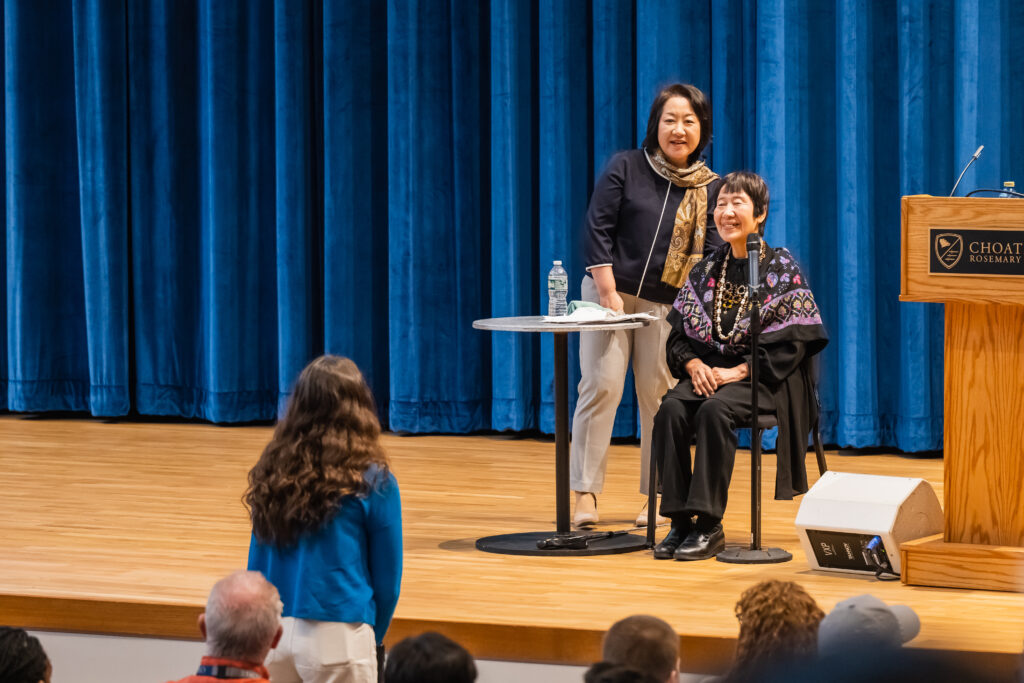In a competitive national pool of 869 candidates, Choate alumni Hannah Schneider ’10 and Russell Bogue ’12 were two of the 32 recipients of the prestigious American Rhodes Scholar Class of 2016 scholarships. These scholarships provide for all the expenses for two or three years of graduate study at the University of Oxford.
The last time a school ever had two Rhodes Scholar in the same year was in 2008, when Phillips Academy Andover graduates R. Jisung Park’04 and Abby Seldin’05 received the honor.
Both Bogue and Schneider have big plans for Oxford. Schneider plans to obtain a Master of Philosophy in Music, specializing in composition and conducting. Bogue intends to obtain a Master in Philosophy in Political Theory, where he will continue studies in comparative constitutionalism and democratic development.
Both Choate alumni decided to apply to the Rhodes scholarship because of the opportunities it provided. Bogue remarked, “For someone who wants to go into academia, the opportunity to study free-of-charge at a university like Oxford, surrounded by other curious students, is a dream.”
Schneider commented, “The Rhodes provides for two years of graduate study, and a community of innovative thinkers. There’s no better place to hone my skills and ideas.” She continued, “I currently work at the Mariinsky Theatre in St. Petersburg on various development projects. I am interested eventually in conducting, however, and in discovering new outlets and audiences for classical music, and to do that, I need space to explore.”
The Rhodes scholarship, created in 1902 by Cecil J. Rhodes, a British philanthropist and African colonial pioneer, were intended to be given to people with commendable “character, commitment to others and to the common good, and for their potential for leadership in whatever domains their careers may lead.”
Schneider, a Georgetown graduate who majored in Russian, described the Rhodes application process as, “fairly rigorous, especially if you have a full time job.” She added, “Rhodes looks for grit, and I think having designed and carried out a humanitarian project in a terrorist hotspot probably contributed to my case.” She did her humanitarian project in the North Caucuses during the spring of her junior year. Schneider raised funds through crowdsourcing and travelled there to record an album. “The North Caucasus is the poorest and most violent region of Russia, and I wanted to see whether I could make connections between musicians and promoters to expand opportunities for artists in the region.”
Schneider has always been interested in music. She grew up in Russia, but spent her freshman and sophomore years of high school in the States being homeschooled so that she could dedicate enough time to practice violin. She was attracted to the Arts Concentration Program at Choate, and enrolled in Choate as a new fifth former. “I was challenged by Mr. Ventre when he gave me a leadership position in Chamber Orchestra. I also played in various smaller ensembles, and had a few hours a day to practice.”
She reflected on her time at Choate, “It was in the interactions with my teachers, particularly with English teachers like Mr. David Loeb and Mrs. Nancy Miller, that I began to gain confidence, both in my academic ability and in my validity to reach out and get to know other students.”
Mr. Loeb, who taught Schneider ’10 for two years, commented, “Hannah was just so smart; she had a mind. She was this kind of student that a teacher would prep a little harder for, because you knew you had to keep up with her. She was somebody who loved being at Choate because she wanted to be surrounded by smart people. She got a thrill out of that.”
She addressed current Choate students, “Don’t wait to ask yourself the important questions. If you don’t fervently and actively seek the answers to these questions, you’ll get swept away in the current of what other people think is important, whether that is grades, money, and such.”
Schneider also advised students to take risks, “I took a lot of risks—a gap year, a gap semester, a major that wasn’t as sexy as economics or political science, but I made these choices because I reset the metrics of success. That’s what gave me the freedom to do what I did. I wasn’t gunning for the Rhodes; if I had been, perhaps I wouldn’t have taken so many risks, and perhaps, ironically, I wouldn’t have won.”
Bogue, a senior at the University of Virginia majoring in politics, also felt that his experience at Choate was transformative. He recalled, “It was at Choate that I learned that politics and political thinking could be both imaginative and pragmatic—that I could harness my creativity to think critically about substantive political questions with tangible impacts on individual lives. Choate also fostered an intrinsic love of learning for the sake of learning, which has impacted by desire to go back into academia after graduate studies.”
He advised the student body of Choate, “Invest in people. I would especially encourage students to cultivate relationships with the teachers at Choate. One of my eight recommenders for the Rhodes was Dr. Katharine Jewett, who was my French teacher and one of my mentors at Choate. I never thought when I graduated from Choate that I would be going back to my teachers there for recommendations during my fourth year in college, but I think that’s testament to the quality of instruction at Choate and the ways in which students and teachers can develop lasting bonds.”






